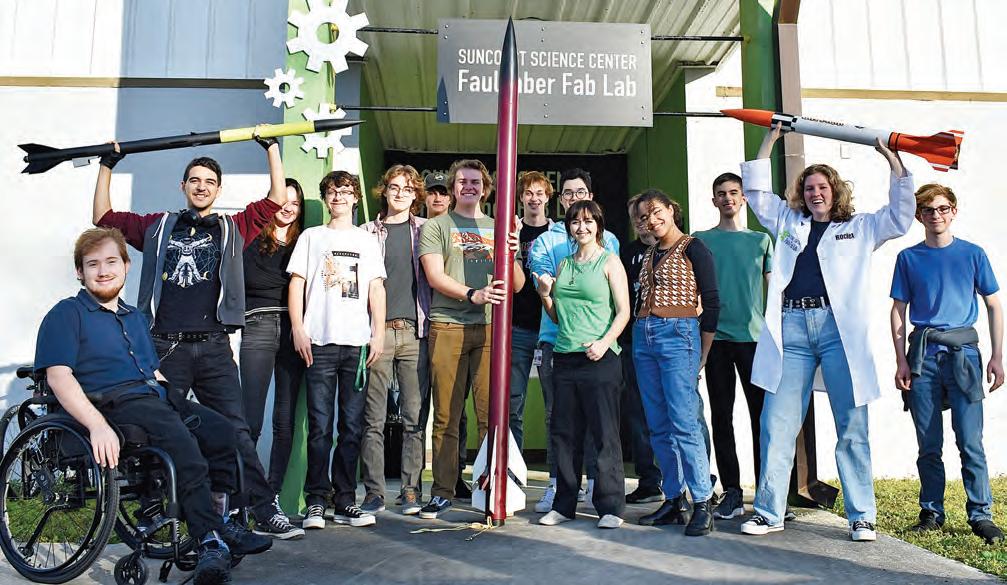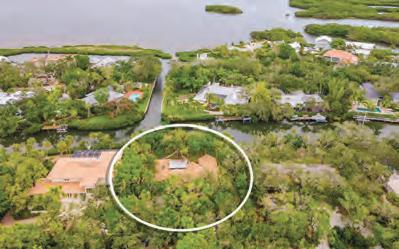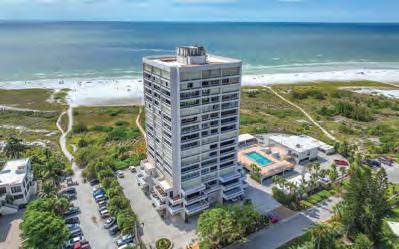
1 minute read
Teens’ work aims to lift off this year
DARIELA DELGADO STAFF WRITER
Twenty students from eight high schools came together at Fab Lab to combine their knowledge and create a team with the lofty goal.
The effort is led by Riverview High School senior Sebastian Grabowski, who wanted to branch out when his rocketry club at Riverview didn’t gain altitude as quickly as he hoped.

“There weren’t a lot of peo - ple interested,” Grabowski said. “Towards the end of my sophomore year, I joined Fab Lab as a summer camp volunteer. I was like, ‘Oh my God. This place is so cool.’ There were a lot of people from different schools. So, if I would create the club over here, I would have those connections to different schools instead of focusing on Riverview.”
Sebastian proposed the idea of a rocketry club at Fab Lab after volunteering for their engineering summer camp in 2022.
Grabowski is part of the Tripoli Rocket Association, an organization dedicated to education, advancement and safe operation of amateur rockets. “It’s a worldwide known organization for amateur rocketeers. It’s in Tampa. That’s where this rocket came from,” he said.
“I made the proposal to Riverview as a science project focusing on Earth space and they liked it,” said Grabowski. “I got approved by the school board because dealing with chemicals, I needed approval, but they didn’t want to fund me.”
Grabowski immediately thought of Fab Lab and how they have hardware to use and manufacture their own parts instead of buying them. “We can even expand that learning experience,” said Grabowski.
This project provides students with experience in physics, engineering, computer programming, chemistry and mathematics.
With guidance from professional mentors, including Fab Lab Board Member and Suncoast Polytechnical High School chemistry, physics and calculus teacher Russell Finger, the Rocketry Club student members spent fall 2022 determining plans, goals, testing fuels, designing the rocket nozzle and cone and programming adjustable fins to control the rocket’s flight.
The club aims to launch this spring.
The Rocketry Club is raising money for chemicals used as engine fuel.
“The chemicals are the most expensive part of the rocket. It’s like a car. Repairing the engine is expensive especially when you have to replace it every time (the rocket is used),” said Grabowski.
In addition to monetary support, the group seeks in-kind donations of metal stock and fiberglass tubing as well as support from mentors in the field of aerospace and/or mechanical engineering. For information, contact info@SuncoastScience.org or call 941-840-4394.







































